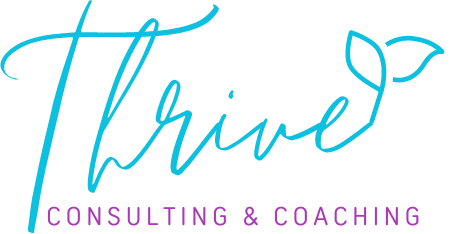Life constantly pushes us to move faster, yet choosing to slow down might seem counterproductive. Statistics tell a compelling story—62% of employees reported burnout in 2023, up from 43% just a year earlier. Society has bought into the myth that speed equals success, but this equation might be fundamentally flawed.
Life’s race leaves no room to build deep connections or create meaningful experiences. People who rush constantly miss the beauty and opportunities around them. Slowing down helps us more than just reducing stress—we learn to let go of control and stay present in our daily lives. This approach, known as “slow productivity,” emphasizes achieving meaningful work over sheer volume that leads to greater satisfaction and purpose.
Slowing down matters because appreciation of today contributes substantially to personal growth. This piece explores how a gentler pace doesn’t mean abandoning success—it means defining success on our terms. We can prevent burnout and create space for what truly matters in life.
The Pressure to Move Fast in Modern Life
Technology, packed schedules, and society’s expectations create a relentless rhythm that overwhelms many people. This breakneck speed didn’t just happen—it’s now part of our modern life.
Why hustle culture feels inescapable
Many people feel they must show up early or stay late to hit their targets in today’s workplace. Social media platforms like Instagram and TikTok make things worse. They show influencers grinding away late at night and make non-stop productivity look glamorous. Money pressures don’t help either—44% of Americans say they need side hustles to make ends meet. The competitive job market pushes people to prove their worth constantly. This creates a cycle where working too much becomes something to brag about rather than worry about.
How speed became a measure of success
Our society now defines success by how fast we move. People think being busy means being important, and productivity equals personal worth. What started as healthy ambition has turned into what psychologists call “toxic productivity”—a compulsive drive to keep producing and achieving until exhaustion hits. Many workplaces reward visible output over meaningful results. They measure value through random metrics like speed instead of real results. People now wear their busy schedules like medals while losing track of what really counts.
The hidden cost of constant busyness
This never-ending motion comes at a steep price. Research shows burnout risk doubles when people jump from 40 to 60-hour workweeks. More than 80% of employees might burn out soon, with Gen Z feeling the most pressure. This constant rush creates:
- Chronic stress and possible mental health problems including anxiety and depression
- Physical health issues from skipping meals, poor sleep, and no exercise
- Damaged relationships as quality time with loved ones shrinks
- Lower productivity despite longer hours because rushing and multitasking cause mistakes
Slowing down isn’t just a nice idea anymore—it’s crucial for staying healthy in a world that rarely catches its breath.
The Mindset Shift: Redefining Success Through Slowness
People feel exhausted mentally and physically from chasing someone else’s idea of success. Our achievement-driven society celebrates the lone wolf who fights against all odds to reach the top. This path often leaves us feeling empty inside.
Letting go of the need to prove yourself
The constant drive to prove our worth through productivity and achievements affects many people. Our fear tells us we’re not enough without external validation. A therapist points out, “We surround ourselves with successful people and lose touch with old friends” during this endless chase. Fear and desperation fuel an unhealthy drive that creates anxiety. You can’t rest easily. Work boundaries become fuzzy. This path ends up causing exhaustion and a lost sense of self.
Our value doesn’t depend on what we produce. The question shouldn’t be “What can I get done today?” but rather “What would make me feel well today?” Success isn’t about doing and achieving – it’s about being present in the moment.
Why slowing down is not the same as giving up
The difference between giving up and knowing when to slow down matters a lot. Giving up comes with feelings of defeat and surrender that often stem from frustration or lack of motivation. Knowing when to slow down shows you understand your limits and can assess your situation.
Tough times make people think they have two choices: push through stress or quit. A third option exists – you can slow down and still make progress without suffering. This approach lets you “catch your breath… keep forming the right habits… rethink the path to make sure you are still taking the right steps.” Slowing down keeps you moving forward at a pace that works better.
How a slower pace leads to deeper clarity
The pace paradox suggests thoughtful approaches bring more value. Cal Newport believes modern hustle culture creates “performative busyness” or “pseudo-productivity” that leaves no space to create meaningful work. A slower pace creates room for inspired thoughts to emerge naturally.
Better decisions come from slowing down because “when you approach a project without the hurried need to tend to many barely-contained fires, you enjoy a more expansive sense of experimentation and possibility.” Your mental and physical health improves with a slower pace. This leads to better productivity over time. Being present matters more than being productive. You connect with your inner wisdom and experience life more deeply.
Real Benefits of Slowing Down in Life
Slowing down does more than just counter hustle culture—it brings real improvements in any discipline of life. Research shows that a measured pace leads to powerful results in personal wellness and professional success.
Better decision-making and focus
Quick decisions often result in mistakes and missed chances. Leaders who take time to consider their options make more informed and effective choices. This careful analysis helps them spot potential challenges and make decisions that have lasting effects. The brain processes information better and connects with intuition when we slow down and create space for critical thinking.
Improved mental and emotional health
Modern life’s constant rush creates stress. Our parasympathetic nervous system activates when we slow down, which helps turn off “fight or flight” mode. This lets us relax, manage emotions, and cut down stress levels. Harvard’s research indicates that “slow living” could lead to health benefits like lower blood pressure and better short-term memory.
Stronger personal and professional relationships
Quick interactions put strain on relationships, but a slower pace promotes deeper connections. We build stronger bonds and create lasting memories by giving full attention to people who matter. Trust and teamwork grow when leaders listen actively and empathize with team members. A slower pace creates room to resolve conflicts, which helps relationships grow.
More creativity and inspired thinking
The slower brain associates with greater creativity, which seems counterintuitive. Studies show that people who think more slowly display better divergent thinking—a key measure of creativity. The Harvard Business Review points out that time pressure kills creativity, but we discover our creative potential when we escape the “quicksand of multitasking”.
Greater appreciation for small moments
A slower life helps us experience reality through presence. Simple pleasures become more noticeable, which leads to more happiness and less stress. This awareness creates what researchers call a “time-stretching effect”—we take in more perceptions and experiences that make life richer and fuller.
How to Start Learning to Slow Down in Life
Life doesn’t change its pace overnight. You need practice and patience to slow down and develop new habits.
Set boundaries and say no more often
Clear boundaries protect your time and energy. A reliable boundary system helps you resist external pressures that push you toward constant busyness. You should establish expectations early in relationships to prevent future problems. Look for opportunities where one “no” saves multiple “nos” down the road. Saying no to commitments isn’t selfish—it means saying “yes” to your wellbeing and what truly matters.
Create space for stillness and reflection
Mental clarity comes from intentional stillness, not from rushing. Start with five minutes of quiet reflection daily without distractions. Take brief mindfulness pauses during your day—three slow deep breaths can reconnect you with the present moment. You can use journaling as a powerful self-reflection tool to explore your thoughts, needs, and behavior patterns.
Disconnect from digital distractions
Digital interruptions break our focus and drain mental energy. Put your devices in another room or use airplane mode during focused work. You should turn off non-essential notifications and create tech-free zones in your home, especially your bedroom. Many apps and browser extensions can limit internet access when you want to stay present.
Prioritize self-care and rest
Self-care prevents burnout—it’s not just a luxury. Your body needs rest to restore energy lost during daily activities. A consistent sleep schedule and calming bedtime routine make a difference. “Doing nothing at all” can be the most restorative form of self-care, giving your mind and body space to recharge.
Reframe productivity as presence
Your definition of productivity should move from output to presence. Your worth isn’t tied to accomplishments but to how fully you participate in each moment. Being present improves your experiences and often leads to increased efficiency. Focus on the effort you bring to each task instead of obsessing over outcomes.
Conclusion
Life rushes us forward at breakneck speed. Taking a step back might seem odd at first. In spite of that, slowing down builds a foundation for meaningful success rather than reducing it.
Redefining success on our own terms breaks us free from the draining cycle of seeking validation. We can choose to be present instead of chasing productivity. This change leads to deeper connections, better decisions, and a healthier mind.
Slowing down does more than just prevent burnout. It sparks creativity, builds stronger bonds, and lets us appreciate life’s simple moments. On top of that, it gives us room to think and make smarter choices.
The first step toward a slower pace feels strange in our achievement-driven world. But simple changes can reshape our experience completely. Setting boundaries, finding quiet moments, and unplugging from digital noise make a real difference. Of course, these habits help us move from constant doing to mindful being.
Note that slowing down doesn’t mean giving up dreams or goals. Yes, it is about approaching them with purpose and staying power. Lasting success looks less like a desperate sprint and more like a thoughtful experience where we stay present for every step.
Society may keep praising busyness, but we can walk a different path. True success has to do with both what we achieve and how we feel while achieving it. Maybe the biggest win isn’t reaching the finish line first but enjoying every moment along the way.



